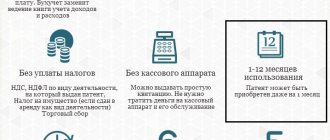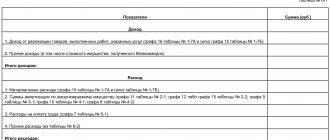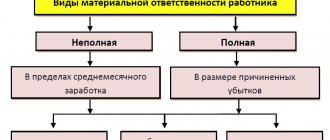According to the provisions of paragraph 1 of Art. 23 of the Civil Code, if a citizen decides to start his own business, he is not obliged to register a legal entity, but can retain his status as an individual and register as an individual entrepreneur.
Dear readers! To solve your specific problem, call the hotline or visit the website. It's free.
8 (800) 350-31-84
At the same time, even if an individual operates without registration at all, then by a court decision he can be recognized as an entrepreneur, which will entail the application of the same measures of responsibility (based on clause 3 of Article 23 of the Civil Code).
Administrative responsibility of individual entrepreneurs
Let's start with the most common type: the administrative liability of individual entrepreneurs provides for a whole range of fines and penalties for various offenses, forced labor and even restrictions on work in any field of activity. Administrative penalties are more common than others and cover an impressive list of violations.
In what cases will regulatory institutions bring a businessman to administrative responsibility? There are quite a lot of situations:
- Incorrect, untimely registration of employees for work, coercion to work without an employment contract or with a “black” salary (depending on the severity and seriousness of tax violations, criminal penalties may even be imposed). Unreasonable refusal to hire and any violations in the field of labor protection.
- Evasion of taxes, mandatory payments and insurance premiums for oneself or for employees. Similar to the first case, more serious violations in this area face proceedings under the Criminal Code of the Russian Federation.
- Working with cash registers without registration or lack of a cash register.
- Working without obtaining a state registration certificate is a type of tax evasion. Punishment will also follow if notification of a change of activity is not made in a timely manner.
- Sales of low-quality products.
- Late submission of declarations and reports to the Federal Tax Service, submission of statistics and any other mandatory reporting.
- Placement of outdoor advertising without approval from the municipality.
For example, a citizen decides to bake and sell cakes online. Even if he earns very little this way, from the point of view of the law he is a violator. He conducts business without official registration and evades taxes. If the fact of work can be confirmed by a test purchase, the entrepreneur will be fined and required to pay not only the fine, but the tax itself and late fees. There are already such cases in Russian practice.
Another example: an entrepreneur is registered with the Federal Tax Service, has hired several employees, but does not officially employ them, does not pay personal income tax for them, contributions to pension and other funds. Employees can contact the labor inspectorate, and the individual entrepreneur, along with an order to immediately register employees as employees, will receive a fine.
Working without official business registration is a common violation
Amounts of fines
What is the maximum fine for an individual entrepreneur? With administrative offenses it is approximately clear, but what is the maximum amount the state can punish an entrepreneur for? The amounts of penalties vary from 500 to 200,000 rubles.
- Fines up to 10,000 rubles: delay in submitting reports to the Federal Tax Service and for employees, an error in one reporting period, lack of a waybill, working without a cash register, lack of a license (when it is needed), delay in issuing a registration certificate, unapproved placement of advertising.
- Up to 30,000 rubles: a blank check, an error in several tax periods, lack of a ledger for accounting income and expenses, violation of submitting statistics to Rosstat,
- Up to 50,000 rubles: partial non-payment of tax, sale of alcohol without a license, repeated violation of submitting statistics, employment of foreigners without permission in the regions,
- Over 50,000 and up to 200,000 rubles: sale of alcohol to minors, employment of foreigners without permission in Moscow, Moscow region, St. Petersburg and Leningrad region.
Thus, the list of fines for individual entrepreneurs is very wide and includes both banal delays in reporting and socially dangerous acts such as selling alcohol to teenagers. The maximum fine - 200 thousand rubles - is quite significant to ruin a small business.
Civil, labor and financial liability
The main type of liability that an individual entrepreneur may bear in the course of carrying out his activities is civil liability. It concerns the procedure for protecting the property and non-property rights of citizens participating in relations with him. It is in the sphere of civil liability that the issues of concluded contracts and transactions, as well as possible compensation for damage caused by actions or inactions, are dealt with. Such liability is regulated by the provisions of the Civil Code of the Russian Federation.
Important fact
The material liability of an individual entrepreneur in Russian law means, first of all, liability of a property nature in labor relations. Other liability for causing material damage relates directly to civil liability.
The labor legal responsibility of an entrepreneur lies in the application of penalties for failure to comply with the standards of the Labor Code in relation to employees. The main legal regulation of such liability is provided by the Labor Code. The responsibility of employees to the entrepreneur can be both material - for damage caused during the performance of work duties, and disciplinary - for certain violations of labor regulations and the provisions of the employment contract. Individual entrepreneurs themselves are not subject to disciplinary liability.
Civil liability of individual entrepreneurs
The civil liability of individual entrepreneurs includes material and debt obligations in accordance with the norms of the Civil Code of the Russian Federation. How does an individual entrepreneur answer for its obligations? The most vulnerable point of an individual entrepreneur is that the entrepreneur is liable for his obligations with property. Simply put, if he goes bankrupt and still owes someone, he will have to sell part of his personal property to pay it off.
From the point of view of Russian laws, which is quite fair, the status of an individual entrepreneur cannot actually be separated from the citizen himself. Therefore, even if a citizen closed his individual entrepreneur during financial problems, he will have to answer for his obligations even after the termination of his activities. It does not matter how long it takes to clear the debts.
An individual entrepreneur’s liability for debts is personal; it does not disappear anywhere after the case is closed.
Material liability
If a legal entity accumulates debts, it may go bankrupt, sell the company's assets and close down. The property of its founders will not suffer in any way. Registering as an entrepreneur in this case is much more dangerous. In addition to the property involved in the business, in case of serious financial problems, an individual entrepreneur is liable for his obligations with part of the property.
In some cases, an individual entrepreneur will be liable for debts with his property
However, the law will not leave a citizen completely without means of subsistence. Whatever the debts, you cannot take away:
- the only dwelling, including a plot of land, if a single residential building is built on it;
- funds at the subsistence level for each family member (if an entrepreneur has a large bank account, there is no doubt that it will be confiscated);
- items of everyday use (clothing, shoes, household items), jewelry and valuable furniture, books, antiques are not included here;
- domestic animals and livestock employed in private household plots;
- planting materials for private household plots;
- food;
- fuels and lubricants for household materials.
Please note that the list does not include a car or household appliances, because in extreme cases the court will force them to be confiscated. The law also contains the concept of “seizure of property and accounts” - this is a restrictive measure that deprives the owner of the right to dispose of them. This does not mean their final loss: after all debts are settled, the unclaimed seized property will return to the citizen.
The court and regulatory authorities cannot seize and sell the property of relatives of a bankrupt entrepreneur . For example, an individual entrepreneur has an apartment in joint ownership with his wife in 50:50 shares. The entrepreneur also has a dorm room that he rents out. The wife has a car registered in her name, which the entrepreneur regularly uses, and a ring worth 120 thousand rubles. What property will the family lose? Only dorm rooms - they are registered in the name of the bankrupt and are not his home. But if the car had been registered in the debtor’s name, the court would have seized it too.
How an individual entrepreneur is responsible for debts
Issues related to the obligations of individual entrepreneurs are addressed by various regulations. But the main part of them falls on the Civil Code of the Russian Federation. Yes, Art. 24 regulates that an entrepreneur is obliged to bear responsibility for debts not only with property belonging to him as a legal entity, but also as an individual, i.e., with his personal property.
There are a number of items that are exceptions to this rule:
- The debtor's only home.
- Personal items (shoes, clothes, etc.).
- Household items, including food products.
Labor legislation
If an individual entrepreneur has employees, then his activities must be subject to the requirements of labor legislation. The Labor Code of the Russian Federation establishes that any debts to employees are subject to compensation if, through the fault of the entrepreneur, they did not receive the earnings due to them.
If the individual entrepreneur caused damage to the property of his worker, he is also obliged to compensate for it. Art. 235 of the Labor Code of the Russian Federation determines that the market value of the damaged property is taken as the basis. In this case, the employee is not obliged to go to court. It will be enough for him to simply provide evidence that the damage was actually caused.
An individual entrepreneur can pay for debts with his property
Administrative responsibility
If an entrepreneur has committed administrative offenses in his activities, then the Code of Administrative Offenses of the Russian Federation applies to him. Such offenses may include the following acts:
- Delay in reporting to tax authorities.
- Non-payment of taxes (in case of large amounts, criminal liability arises).
- Illegal sale of goods without complying with all rules requiring full information about the products sold.
- Failure to use a cash register in trading activities.
These are the most common offences. There are many more such acts. The Code of Administrative Offenses of the Russian Federation prescribes the imposition of different amounts of fines for their commission. Simply liquidating an individual entrepreneur so as not to pay them will not work. In this case, even if it is closed, it will be obliged to reimburse organizations and the state for all amounts.
Criminal liability of individual entrepreneurs
Before we continue to look at lists of crimes and penalties for them, it is worth understanding that an offense can lead to different types of liability in proportion to its severity. In most cases, the choice is made between administrative and criminal liability. Light and medium offenses are administrative, very serious offenses are criminal.
Individual entrepreneurs are attracted under the Criminal Code of the Russian Federation:
- from 900 thousand rubles of hidden taxes;
- causing serious harm to the health of an employee/death in the workplace;
- discrimination against employees and potential candidates for employment on any grounds;
- refusal to employ a pregnant woman or mother of a child under 3 years of age;
- significant delay in payment of wages;
- economic violations (more details in the next section).
The maximum penalty is 3 years of imprisonment or 4 years of forced labor. If any violations are discovered, a trial is always scheduled. The entrepreneur will be subject to a presumption of innocence: he is not obliged to prove the absence of a crime, and on the contrary, he has the right to invite witnesses and defend his innocence.
The law imposes many requirements on individual entrepreneurs and all of them must be observed in order not to receive punishment
Economic crimes
A fairly large category of violations common among individual entrepreneurs are economic crimes. Administrative and criminal penalties. This category includes:
- Work without registration or license (in a licensed industry). Up to and including criminal punishment.
- Evasion of taxes and obligatory payments, contributions.
- Concealment of taxable income.
- Laundering of illegal income, “false entrepreneurship” for a similar purpose.
- Large loan debts.
- Illegal lending, falsification of information in declarations and reports.
- Production and sale of counterfeit goods. Particularly serious penalties for counterfeit alcohol are excise tax evasion. By the way, for individual entrepreneurs the sphere of alcohol, with the exception of beer, is completely closed.
- Use of other people's brand names.
Responsibility of individual entrepreneurs after closure
Is the individual entrepreneur liable after closing? For different types of liability, the solution to this issue will be different. The status of an entrepreneur is inalienable from a citizen, so all his debts will remain even after the official termination of his activities, up to the full repayment of obligations to creditors. Therefore, during financial difficulties, there is no point in closing an individual entrepreneur in order to avoid retribution.
There is also no statute of limitations for non-payment of taxes. Theoretically, if an entrepreneur has not paid taxes and has officially closed the business, the Federal Tax Service has the right to sue him at any time, even after several years. A claim cannot be filed only after the bankruptcy of a citizen or his death. Tax debts of individual entrepreneurs are not passed on to relatives.
Serious violations such as tax evasion amounting to more than 900 thousand rubles are punishable by imprisonment.
Is it possible to open/close an individual entrepreneur with personal debts? faces
Just as an individual is responsible for the debts of an individual entrepreneur, and vice versa, an entrepreneur is responsible for his civil debts. You can open and close an individual entrepreneur with debts, but there are restrictions:
- It is impossible to liquidate the status of an individual entrepreneur with debts to the Pension Fund and the Social Insurance Fund. In practice, there is no need to collect documents - the Federal Tax Service independently submits a request and receives the necessary information from extra-budgetary funds;
- You cannot open the status of an individual entrepreneur with tax debts. A certificate confirming the absence of presented debts will be required.
After closing, the liability does not disappear anywhere - it remains valid. Creditors can demand the return of funds through the court.
Do you want to know the details of closing or opening the status of an individual entrepreneur with debts, the latest versions of the law and the level of responsibility? Get expert advice from our lawyers - we will answer all your questions and help you solve your debt problems.
To get a consultation
Ask any question about bankruptcy and receive a detailed answer. It's free.
Responsibility for violations of the Labor Code of the Russian Federation
Individual entrepreneurs have the right to be employers, in other words, to hire employees. However, their responsibility in this case will be not only the timely payment of wages not less than the minimum wage, but also the provision of vacations, sick leave, payment of taxes and insurance contributions. Each employee must be officially employed and receive a “white salary”. The employer is obliged to create comfortable and safe working conditions, and, if necessary, provide instructions to the employee and obtain his signature. Any of these violations is punishable by fines of about 15 thousand rubles, and concealment of income can lead to criminal liability.
In addition, an entrepreneur can be fined for refusing to hire a pregnant woman or the mother of a child under three years old. This, like any other employment discrimination, is punishable by a fine. In some cases, the court will force the individual entrepreneur to hire such an employee.
Delay in payment and incomplete payment may be grounds for a fine of up to 120 thousand rubles, along with an order to repay all debts to employees, or even imprisonment for 1 year. If an individual entrepreneur completely refuses to pay his employees, the fine can reach up to 500 thousand rubles, and the prison term can be up to 3 years. Other punishment options are compulsory work for 4 years or a ban on entrepreneurial activity.
IP status is closed. What happens after?
Let's look at how events will develop after the status is closed.
The entrepreneur paid off his tax debts and closed his individual entrepreneur
There are still debts to banks and counterparties, and now it is necessary to somehow get rid of them. An entrepreneur can file an application with the Arbitration Court, declaring himself bankrupt. The following procedure can be applied to it:
- Debt restructuring. Applies if the individual entrepreneur is solvent and will be able to pay off creditors within 3 years. The interests of all creditors are taken into account: that is, it is impossible, for example, to first pay off with one main supplier, ignoring the bank, Vodokanal and the tax office.
The procedure is of a rehabilitation nature; after payments are made according to the schedule, the person is not declared bankrupt. Is as follows:
- an application for recognition of insolvency is submitted; - a financial manager is appointed; — a register of requirements is being formed; — proposals for a debt repayment plan are made; - the plan is approved at a meeting of creditors and by the court if it suits everyone; - the debtor pays off with creditors within up to 3 years.
Restructuring is beneficial if:
— there is property under collateral; - the husband of the individual entrepreneur has debts, but the property is shared with his wife, and they do not want to lose it; - the person does not want to be declared bankrupt.
- Sales of property. The procedure is introduced either immediately or after debt restructuring.
According to Law No. 127-FZ On Bankruptcy, the following activities are carried out:
- an arbitration manager is appointed; — a register of creditors is formed; — a bankruptcy estate is formed from the debtor’s property; — tenders are held; — settlements with creditors are carried out; - debts are written off.
In case of bankruptcy, the spouse of the individual entrepreneur is not liable, but the common property acquired during the marriage will be sold: it will be taken away for sale. The wife/husband is returned his share of the proceeds from the sale of common property.
The entrepreneur was unable to close the individual entrepreneur due to the formation of tax debts
That is, fees continue to be accrued, late fees for taxes increase, but liquidation of the entrepreneur’s status is impossible.
Next, the Federal Tax Service or other creditors, as well as the debtor himself, can apply for bankruptcy. The procedure will be carried out in the manner described above, liquidation is carried out by court decision.
Responsibility for non-payment of taxes
Violations of the Tax Code of the Russian Federation are among the most common in business. Regardless of whether they were committed by mistake (inaccurate declaration, slight delay in submitting reports) or intentionally (intentional tax evasion, concealment of income), the businessman will be punished:
- a fine in a fixed amount or as a percentage of the debt;
- fines;
- arrest of accounts (for refusal to submit a tax return);
- imprisonment.
The most common punishment for tax violations is fines. They are appointed for incorrect execution of documents and their delay, incorrect accounting of income or expenses, evasion of mandatory payments in any form. Such punishment as blocking a current account automatically deprives an individual entrepreneur of the opportunity to conduct business. Therefore, the deadlines for submitting documents to the Federal Tax Service must be strictly monitored, as well as the procedure for their execution.








